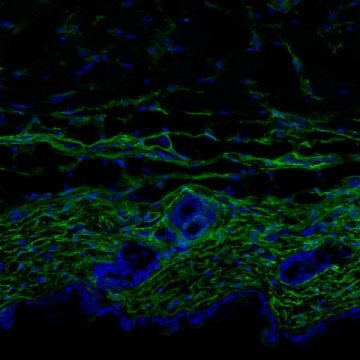With age, our tissues lose their function and capacity to regenerate after being damaged. A study published today in Cell by scientists at the Institute for Research in Biomedicine (IRB Barcelona) and the Centro Nacional de Análisis Genómico of the Center for Genomic Regulation (CNAG-CRG) explains how dermal fibroblasts age. The main conclusion drawn is that these fibroblasts lose their cell identity, as if they had “forgotten” what they are, and consequently their activity is altered, thus affecting tissue. The study reveals the cellular and molecular pathways affected by ageing and proposes…
Read MoreAuthor: Tom Patriot
REJECTED by DON HERTZFELDT
This Bad Lip Reading of Lady Gaga & Bradley Cooper’s Oscars Performance Is Hilarious
The world is still not over Lady Gaga and Bradley Cooper’s electric performance at the Oscars, where they reunited onstage for an extra special rendition of “Shallow” from A Star Is Born. But if you’ve already listened to the original version to death, then you might just be ready for the Bad Lip Reading version instead. Transforming “Shallow” into “Chocolate Lagoon”, the geniuses running the Bad Lip Reading YouTube channel found a way to turn the steamiest Oscars performance of all time into the funniest. By badly lip reading what Cooper and Gaga are singing in…
Read MoreCD38 mutation and potential link to autism
Oxytocin has been the focus of intense research around autism spectrum disorder (ASD) due to the hormone’s reported positive effects on anxiety, empathy, social interaction, and maternal behavior. ASD is characterized by early onset of behavioral and cognitive alterations, and by low plasma levels of oxytocin. The enzyme CD38 was recently demonstrated to be critical to the regulation of oxytocin secretion. An animal study published in The FASEB Journal sought to explore whether a deficit in CD38 expression would lead to functional modifications of the brain’s prefrontal cortex, which is involved in…
Read MoreStudy links perimenopause to accelerated fat mass gains, lean mass losses
A UCLA-led study confirms what women approaching menopause have long suspected: menopause does make fat go up. The study finds that women undergoing perimenopause lost lean body mass and more than doubled their fat mass. The research demonstrates that body mass index (BMI) is a very important clinical tool for predicting health events, such as getting diabetes or having cardiovascular disease — but is a less useful gauge of cardio-metabolic risk in older women. The menopause transition, also known as perimenopause, is the time in a woman’s life when hormonal…
Read More


